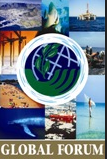Oceans Day at Durban covered a variety of issues, including the impacts of sea level rise, extreme weather events, the specific vulnerability of small island developing States (SIDS) and ocean acidification.
Amb.
Dessima Williams, Permanent Mission of Grenada to the UN, and Chair, Alliance of Small Island States (AOSIS), stressed that climate change is changing oceans from “a friend and resource into an enemy.”
 3 December 2011: Participants at Oceans Day 2011 discussed the impacts of sea level rise, extreme weather events, the specific vulnerability of small island developing States (SIDS) and ocean acidification. They stressed the urgent need to address oceans and coasts within and outside the UN’s climate change process, including through an integrated programme for oceans and climate.
3 December 2011: Participants at Oceans Day 2011 discussed the impacts of sea level rise, extreme weather events, the specific vulnerability of small island developing States (SIDS) and ocean acidification. They stressed the urgent need to address oceans and coasts within and outside the UN’s climate change process, including through an integrated programme for oceans and climate.
Oceans Day took place on 3 December 2011, on the sidelines of the 17th session of the Conference of the Parties (COP 17) to the UN Framework Convention on Climate Change (UNFCCC ) in Durban, South Africa. The one-day meeting was organized in seven sessions, including on oceans and climate issues in SIDS. At this session, Amb. Dessima Williams, Permanent Mission of Grenada to the UN, and Chair, Alliance of Small Island States (AOSIS), stressed that although Grenada has made efforts to protect its oceans, the survival of SIDS depends on the outcomes of the UNFCCC process. She said climate change is changing oceans from “a friend and resource into an enemy.”
Luke Daunivalu, Deputy Permanent Representative of Fiji to the UN, underlined that the 14 Pacific SIDS are defined by oceans, as 97 percent of their territory consists of seawater. He identified climate change and ocean acidification as the greatest adversity facing the Pacific SIDS, and called for increased accountability in global fisheries management.
Amb. Angus Friday, International Climate Policy Specialist, World Bank, and Former AOSIS Chair, stressed the high vulnerability of SIDS to extreme weather events. He welcomed the growing interest in the blue economy, highlighting the need to introduce the concept into the UN Conference on Sustainable Development (UNCSD, or Rio+20) and climate change processes. Selwin Hart, Councillor, Permanent Mission of Barbados to the UN, and Chief Negotiator for Climate Change for Barbados, said Rio+20 should comprehensively address oceans issues in order to be a success. He called for the operationalization of the Cancun Agreements, a second commitment period under the Kyoto Protocol, and a new legally binding agreement under the Convention. He urged focusing on implementation of existing commitments at Rio+20.
In the ensuing discussions, Nkosazana Dlamini Zuma, South African Minister of Home Affairs, expressed support for SIDS, saying they must not be apologetic for their cause and that they should “keep at it, until you are heard.” Regarding how small islands can move their agenda forward, Hart said ocean discussions need to be focused, and SIDS negotiators must guard against incoherence on ocean issues.
Oceans Day was co-organized by the Global Ocean Forum, in association with a number of partners, including the Government of South Africa, the Intergovernmental Oceanographic Commission of the UN Educational, Scientific and Cultural Organization (IOC-UNESCO), the Global Environment Facility (GEF), the UN Development Programme (UNDP), and the GEF/UNDP/UN Environment Programme (UNEP) African LME projects. [IISD RS Coverage] [Oceans Day at Durban Co-Chairs’ Statement]